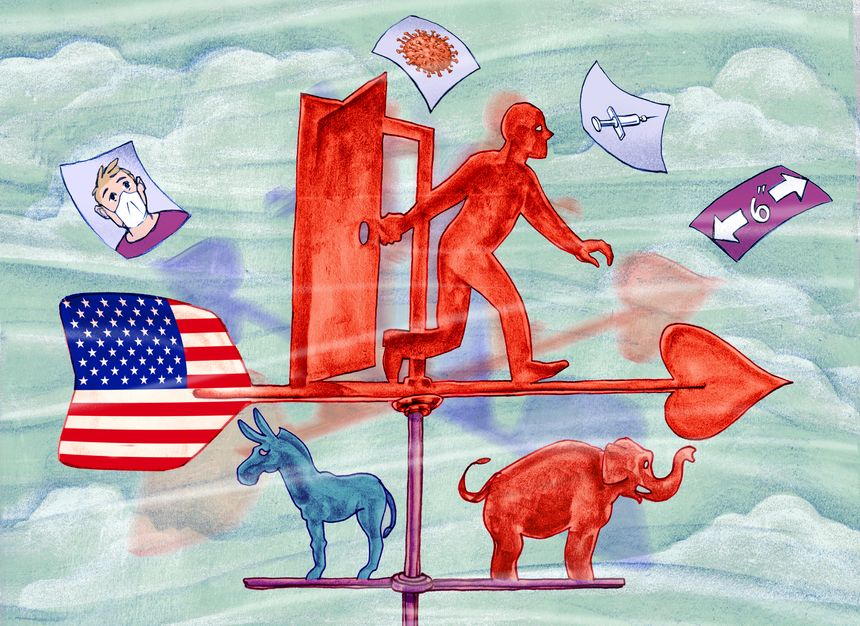Kerby Anderson
The Great Depression took place in the 1930s. Arthur Herman suggests that we refer to the first two years of the 2020s as the Great Confinement. He argues that just as the Great Depression changed the political landscape, so the Great Confinement will do the same in the next few years. We may be on the verge of a significant political realignment.
The Great Depression destroyed the American voters’ faith in Wall Street and big business. In 1932, Franklin D. Roosevelt described those left stranded by the Great Depression as “the forgotten man” while he and other Democrats were swept into office.
The Great Confinement (in the form of lockdowns and mandates) might have a similar impact in the opposite way. Voters have lost faith in the basic competence of government. This time the party out of office will enjoy the benefit of voter frustration. Roosevelt talked about “the forgotten man.” This time the Great Confinement has created a nation of forgotten Americans.
Polls already show a political and philosophical shift. Two-thirds of Americans feel the country is on the wrong track. A recent Axios poll found that two-thirds (66%) of Republicans and more than four in ten (41%) of Democrats said they are more fearful of what will unfold in 2022.
I divide the costs of confinement into the three e’s (economy, education, and emotional). The economic cost of the pandemic and lockdowns is estimated at $16 trillion. Studies of student performance document the devastating impact of the lockdowns on learning and student achievement. And the emotional toll can be seen in the rising levels of anxiety, depression, and suicidal ideation.
Add to these statistics the rising crime rates and rising inflation rates, and you can see how we may indeed be on the verge of a political realignment.
 Listen Online
Listen Online Watch Online
Watch Online Find a Station in Your Area
Find a Station in Your Area










 Listen Now
Listen Now Watch Online
Watch Online
